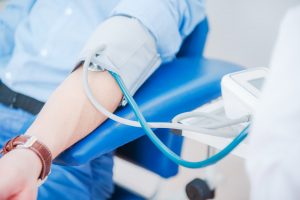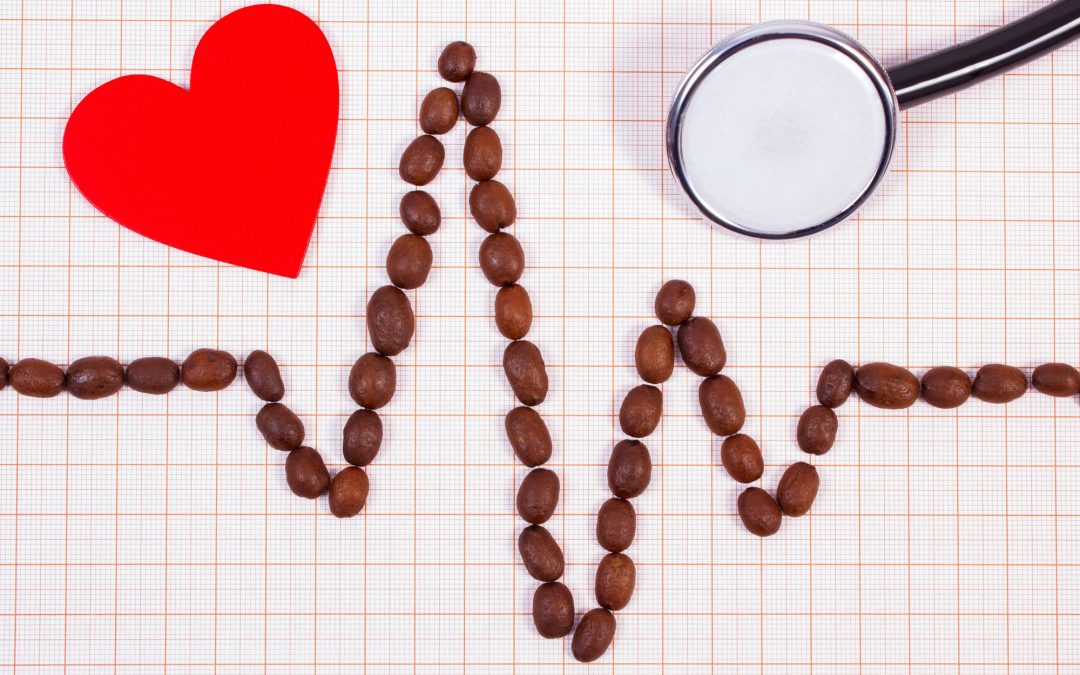Coffee contains caffeine, a stimulant that keeps you alert – but can caffeine cause high blood pressure? Learn how coffee affects your blood pressure.
People worldwide love coffee, consuming close to 19 billion pounds of the beverage per year. After taking a few sips, people can experience a “coffee buzz” that leaves them wanting more.
However, some people are worried that drinking too much coffee can negatively impact health by increasing blood pressure. The following explores the connection between coffee and blood pressure – and if it’s wise to continue drinking the beloved beverage.
Short-Term Effects
 In addition to keeping you awake, some research suggests that coffee may temporarily increase your blood pressure levels. According to a review of 34 studies, drinking 1.5 to 2 cups may increase your blood pressure by 8 mm Hg. These effects took place within the span of three hours after consumption, similarly affecting those with normal and high blood pressure levels.
In addition to keeping you awake, some research suggests that coffee may temporarily increase your blood pressure levels. According to a review of 34 studies, drinking 1.5 to 2 cups may increase your blood pressure by 8 mm Hg. These effects took place within the span of three hours after consumption, similarly affecting those with normal and high blood pressure levels.
However, these effects seem to only happen in the short term and may not affect those who drink coffee regularly. In other words, if you don’t usually drink coffee, you may experience a short-term spike in your blood pressure.
Long-Term Effects
The good news for coffee-lovers is that this temporary effect doesn’t seem to last for long. In fact, the same study suggests that daily coffee consumption may not have significant effects on blood pressure.
Conversely, regularly drinking coffee (3 to 5 daily cups) may reduce heart disease risk in otherwise healthy people. Due to having multiple bioactive compounds with strong antioxidant effects, coffee may even reduce oxidative stress in the body.
Furthermore, some researchers suggest that the benefits of drinking coffee may outweigh the negative effects if you regularly drink coffee.
Coffee and High Blood Pressure
If you have high blood pressure, you may be wondering if it’s a good idea to drink coffee on a regular basis. According to some studies, you may in fact benefit from drinking coffee as it contains bioactive compounds that benefit health.
However, you should limit excessive exposure to caffeine and wait until your blood pressure is under control to drink regularly. Just like with everything, moderation is key, and you should ensure you’re leading an overall healthy lifestyle. In other words, focus on exercising regularly and having a diet rich in fruits and vegetables in addition to coffee.
The Outlook
 While coffee may cause short-term spikes in blood pressure, there are currently no known long-term effects on blood pressure. However, people with high blood pressure should wait until their levels are under control to drink coffee.
While coffee may cause short-term spikes in blood pressure, there are currently no known long-term effects on blood pressure. However, people with high blood pressure should wait until their levels are under control to drink coffee.
Moreover, if you want to lower your blood pressure, you should consider exercising, dieting, and taking supplements like L-arginine Plus. Its ingredients help increase nitric oxide production, a compound that naturally boosts circulation. Try L-arginine Plus along with other healthy practices if you want to give your health the support it needs.

